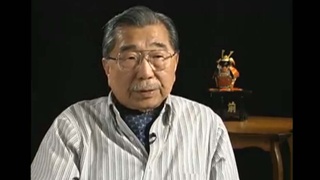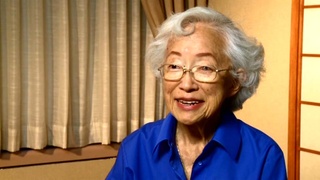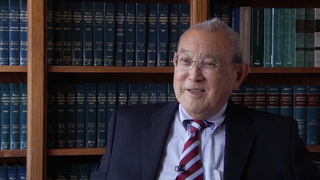Interviews
Stereotypes about Japanese: past and present (Spanish)
(Spanish) Well, I remember that during the war, the USA flooded all the movie screens with films in which Japan was always the enemy, and a cruel enemy. Even in the regular series, which we watched since we were little, we’d see Batman fighting against the Japanese. The Japanese were always the bad guys. And we, innocently, kept going to see the movies, without realizing that they were going to portray the Japanese, our fathers’ fathers, you could say, as this cruel enemy that would kill even for fun. I remember one time I went to see a movie called, exactly as MacArthur had said, “We’ll be back.” When the movie was over – and the movie of course was anti-Japanese – we left, me and my cousin, who were both still little, and everyone was looking at us as if we were, you know, the plague, as they say-diseased, like lepers or something. In any case it was an ugly experience, it really was.
I*: Do you think that kids today experience things like that or not?
No, not anymore. I think the only thing that might bother them would be that they call all of us with almond-shaped eyes “Chinese.” [Laughs] That’s the only thing that… Although we don’t have anything at all against the Chinese. We all get along really well. But they lump us all together like that.
* "I" indicates an interviewer (Ann Kaneko).
Date: October 7, 2005
Location: California, US
Interviewer: Ann Kaneko
Contributed by: Watase Media Arts Center, Japanese American National Museum.
Explore More Videos

The political effects on Nikkei during the war (Spanish)
(b. 1950) Nisei Chilean, Businessman

Government sold Japanese Canadian properties for little money
(b. 1928) Doctor. Former Chair of the Japanese Canadian Redress Foundation.

Questioning Curfew
(1918-2012) Fought the constitutionality of Executive Order 9066.

Challenges of finding a summer job
Judge, only Japanese American to serve on CWRIC.



Traumatic experiences before camp
(1913-2013) Doctor specializing in obstetrics in Southern California

“Everybody went in like sheep”
(1913-2013) Doctor specializing in obstetrics in Southern California

Discrimination for Nisei doctors
(1928–2016) Daughter of an Issei doctor


Being Denied as a Japanese American Lawyer
(b. 1934) The First Japanese American Appointed to the U.S. Court of Appeals.


Discrimination faced in San Francisco (Japanese)
(b. 1937) A war bride from Yokohama

Accepted by Japanese society as I learned more Japanese (Japanese)
(b. 1979) Sansei Nikkei Brazilian who lives in Oizumi-machi in Gunma prefecture. He runs his own design studio.

